CppCon 2023 File I/O for Game Developers: Past, Present, and Future with C++ -- Guy Davidson
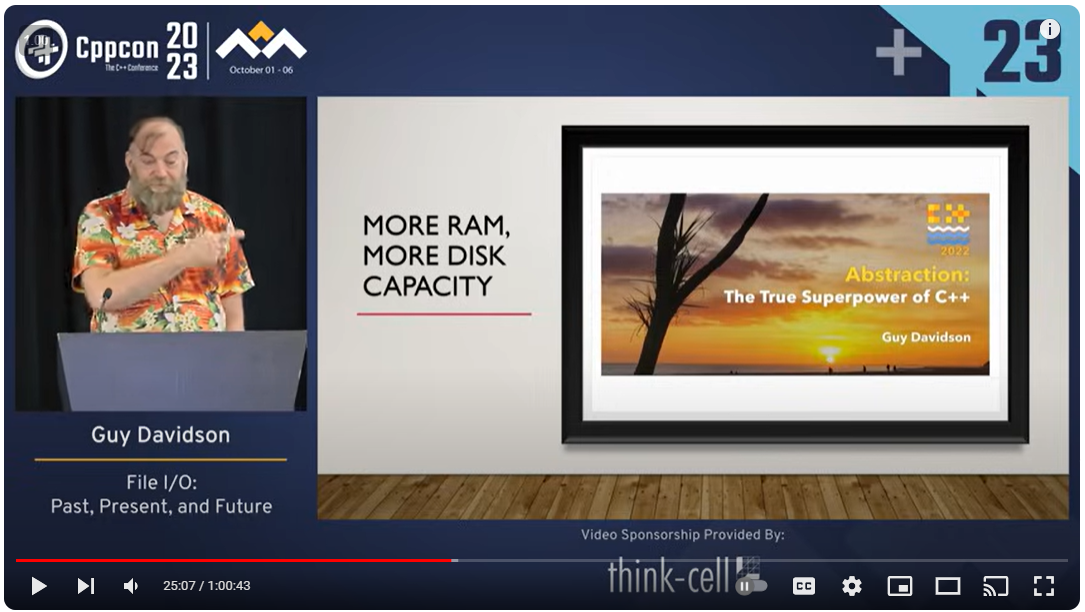 Registration is now open for CppCon 2024! The conference starts on September 15 and will be held in person in Aurora, CO. To whet your appetite for this year’s conference, we’re posting videos of some of the top-rated talks from last year's conference. Here’s another CppCon talk video we hope you will enjoy – and why not register today for CppCon 2024!
Registration is now open for CppCon 2024! The conference starts on September 15 and will be held in person in Aurora, CO. To whet your appetite for this year’s conference, we’re posting videos of some of the top-rated talks from last year's conference. Here’s another CppCon talk video we hope you will enjoy – and why not register today for CppCon 2024!
File I/O for Game Developers: Past, Present, and Future with C++
by Guy Davidson
Summary of the talk:
If you have played a game on a computer in the last few decades, you will most likely have encountered a loading screen. This is used to advertise to the player that, among other things, data is being loaded from a storage device into the game. But why does this exist, why does it take so long, and how can we improve matters for the player?
In this talk we will discover the history of games and their development environments, the relationship between address space, RAM and storage hardware, how C++ abstracts file I/O and why it might not be the best fit for game developers, how a 64-bit address space changes everything, how #embed will change everything, and how C++29 (yes, 29) may upset the applecart yet again.
Although this talk is aimed at game developers who are often Windows programmers, it is relevant to anyone who has to read large amounts of data from local storage. Expect tales of woe, discovery and jubilation as I describe every surprising little thing I've learned about file I/O over the past 40 years and how C++ is heading for a great future in games.

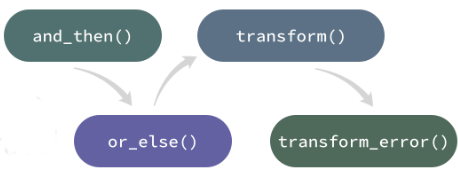 The new
The new 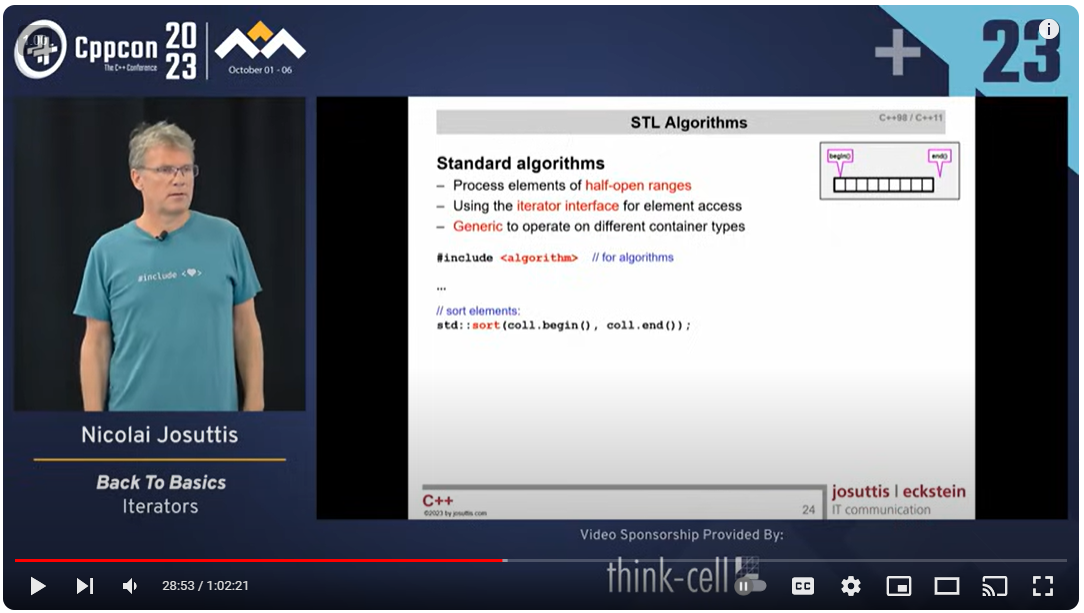 Registration is now open for CppCon 2024! The conference starts on September 15 and will be held
Registration is now open for CppCon 2024! The conference starts on September 15 and will be held  Managing stateful notifications is challenging when multiple requests arrive, and the goal is to only notify about the latest one. In the
Managing stateful notifications is challenging when multiple requests arrive, and the goal is to only notify about the latest one. In the 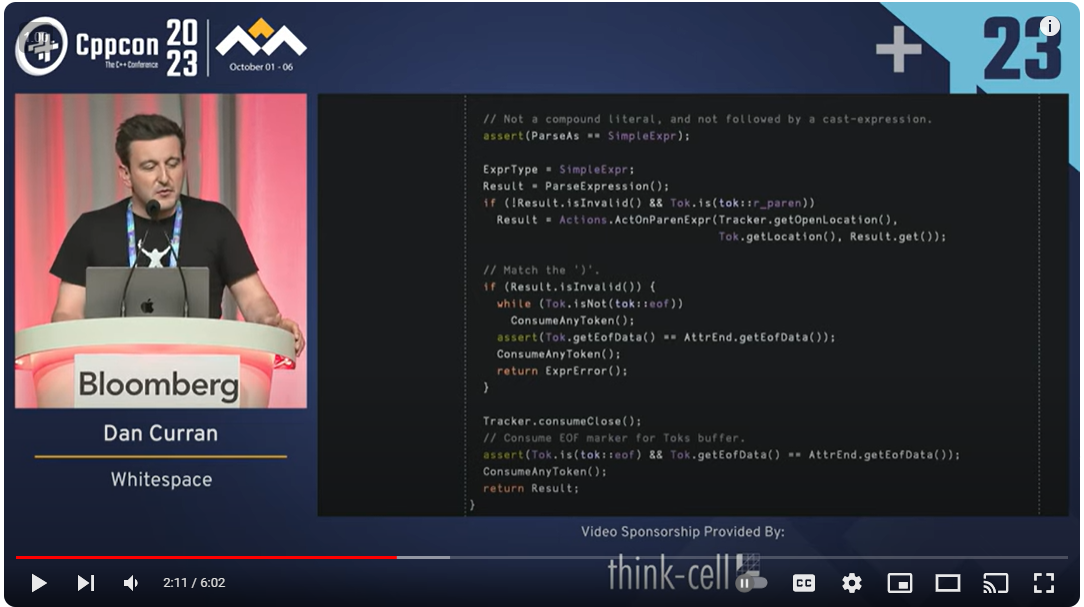 Registration is now open for CppCon 2024! The conference starts on September 15 and will be held
Registration is now open for CppCon 2024! The conference starts on September 15 and will be held 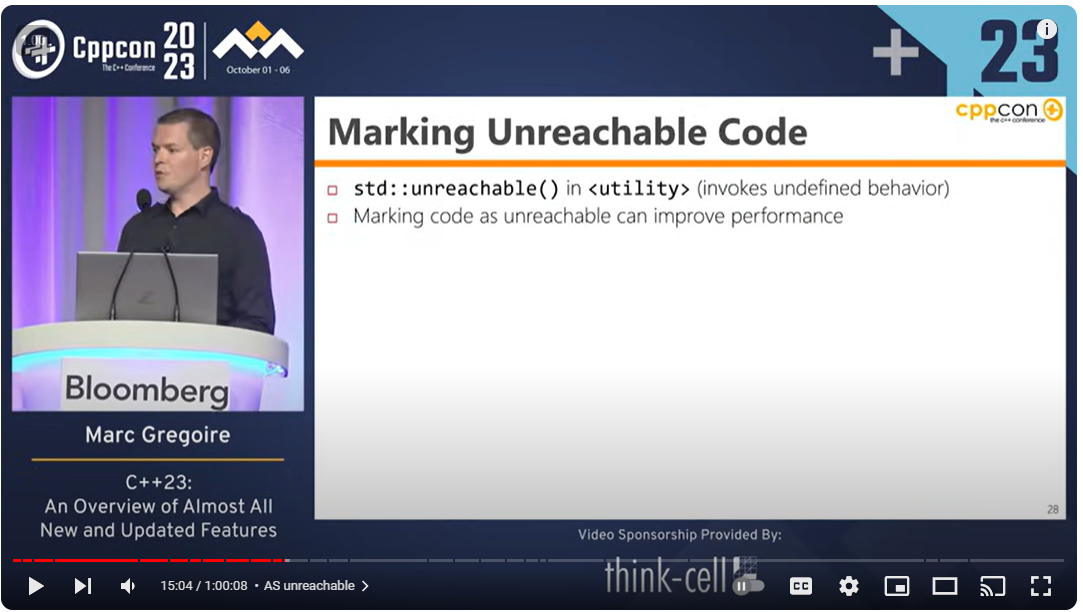 Registration is now open for CppCon 2024! The conference starts on September 15 and will be held
Registration is now open for CppCon 2024! The conference starts on September 15 and will be held  You have probably written a class that prints a message in all its special member functions. And like me, you probably wrote it multiple times. I decided to write it well once and for all, and share it.
You have probably written a class that prints a message in all its special member functions. And like me, you probably wrote it multiple times. I decided to write it well once and for all, and share it. If you're writing C++, there's a good reason (maybe...) as to why you are. And probably, that reason is performance. So often when reading about the language you'll find all sorts of "performance tips and tricks" or "do this instead because it's more efficient". Sometimes you get a good explanation as to why you should. But more often than not, you won't find any hard numbers to back up that claim. I recently found a peculiar one, the
If you're writing C++, there's a good reason (maybe...) as to why you are. And probably, that reason is performance. So often when reading about the language you'll find all sorts of "performance tips and tricks" or "do this instead because it's more efficient". Sometimes you get a good explanation as to why you should. But more often than not, you won't find any hard numbers to back up that claim. I recently found a peculiar one, the 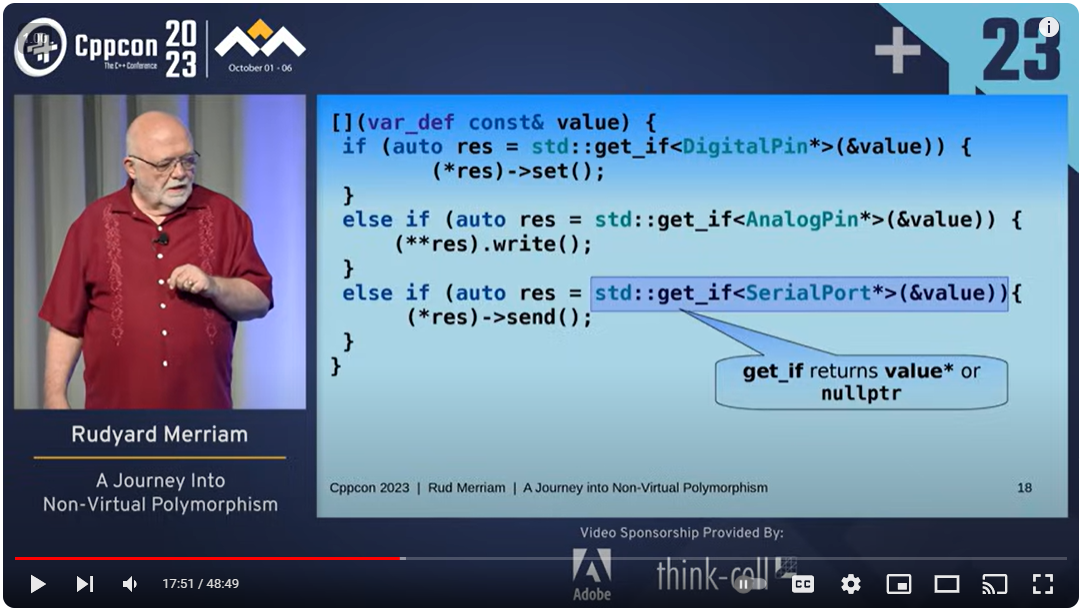 Registration is now open for CppCon 2024! The conference starts on September 15 and will be held
Registration is now open for CppCon 2024! The conference starts on September 15 and will be held